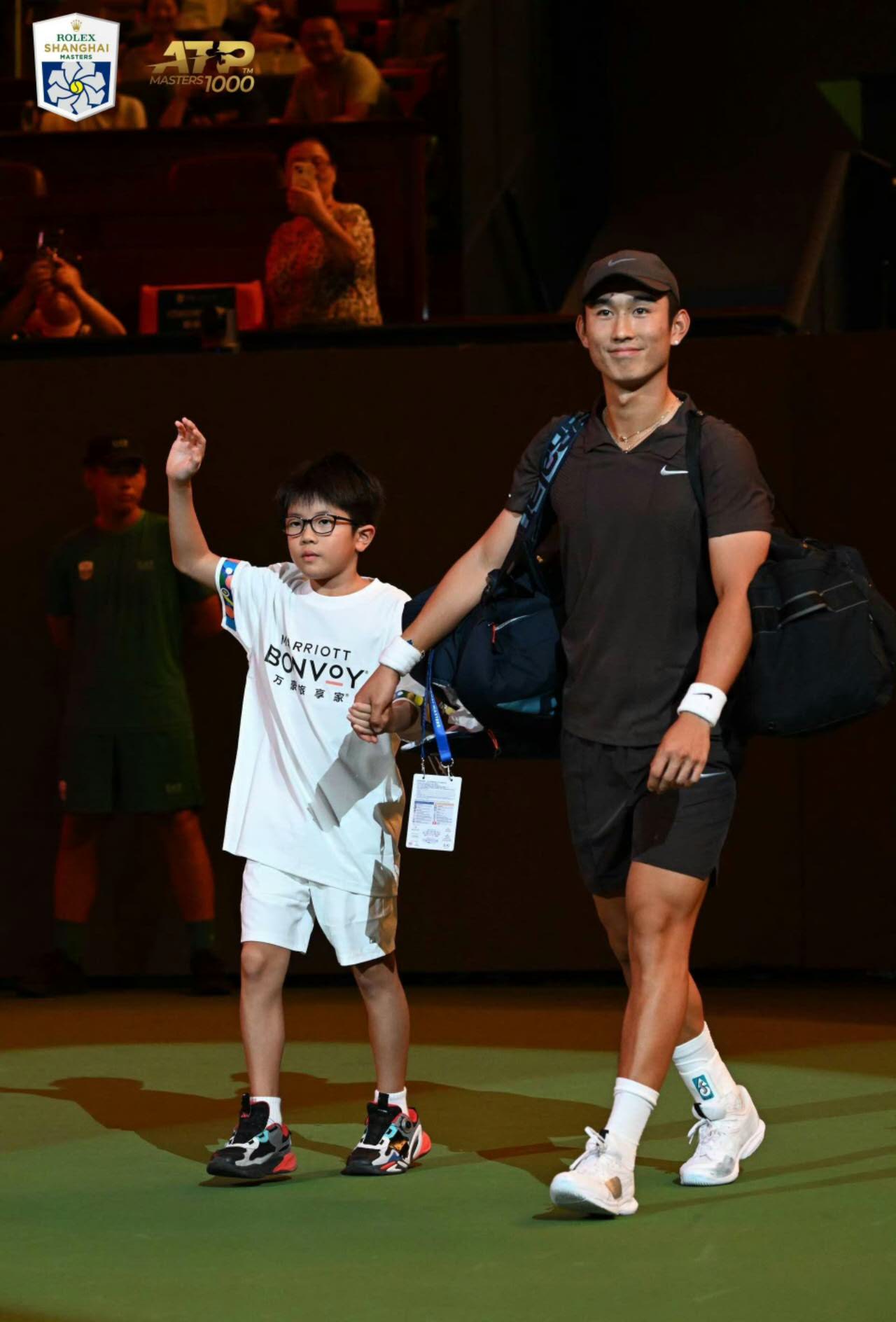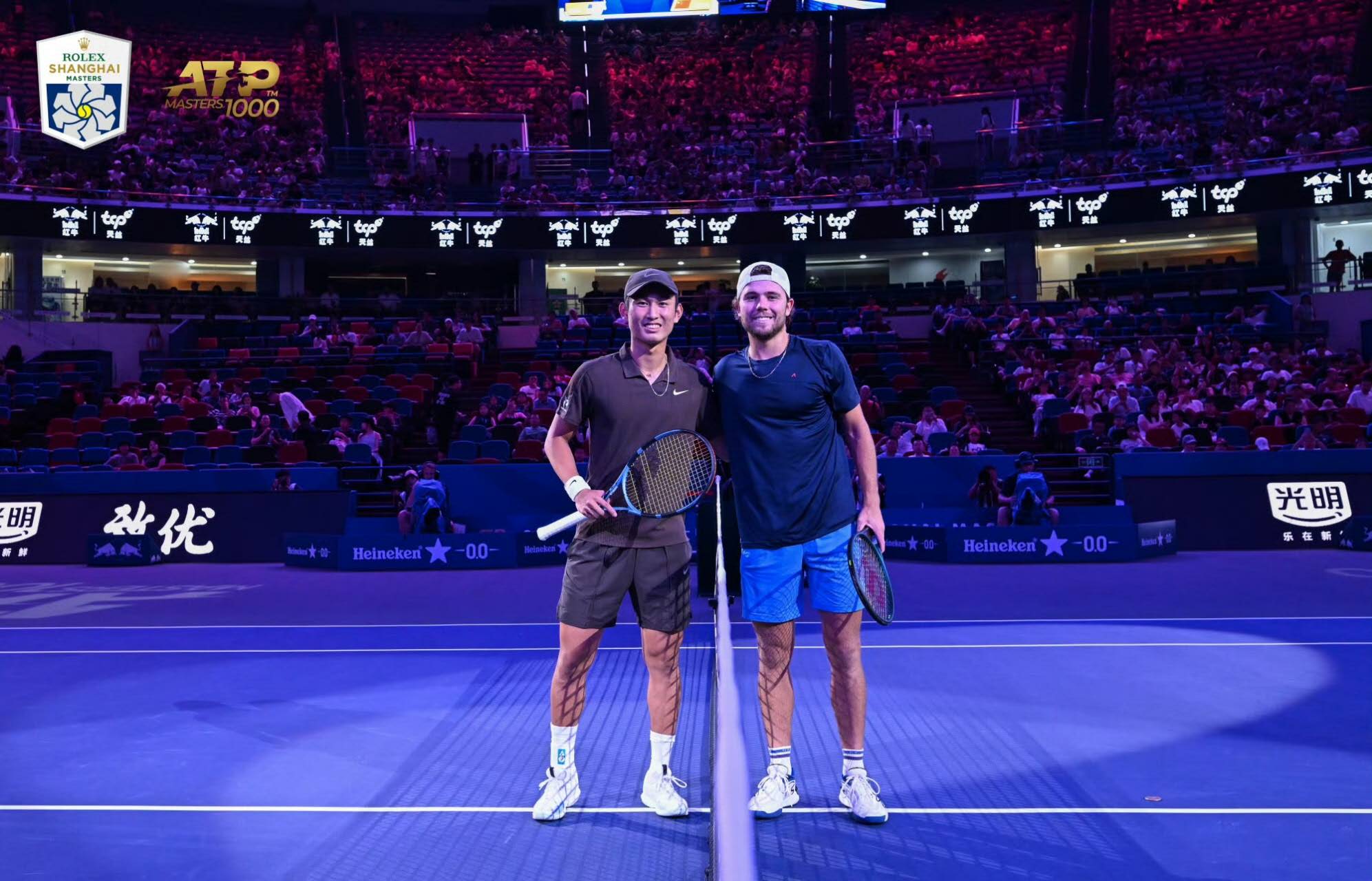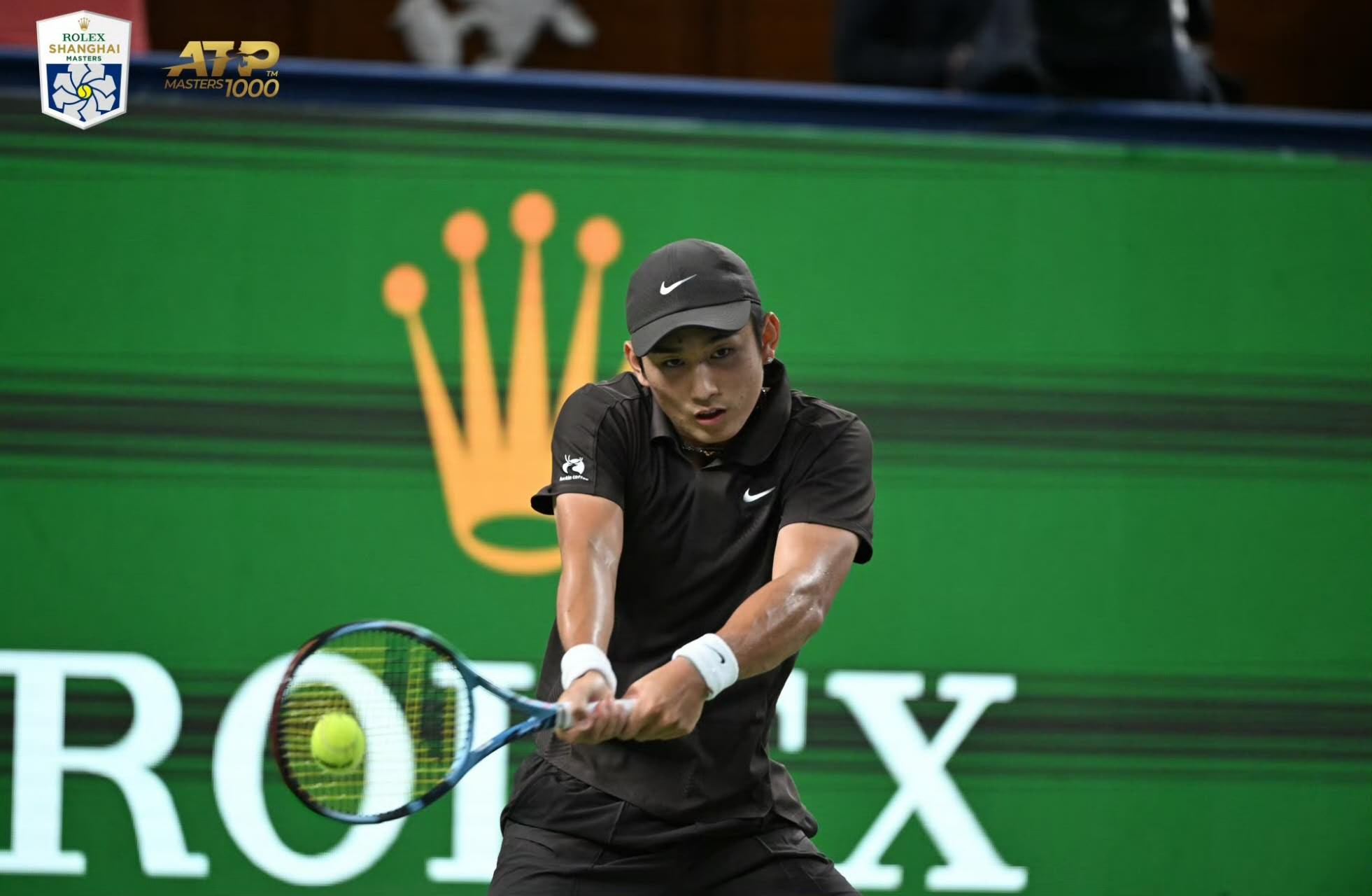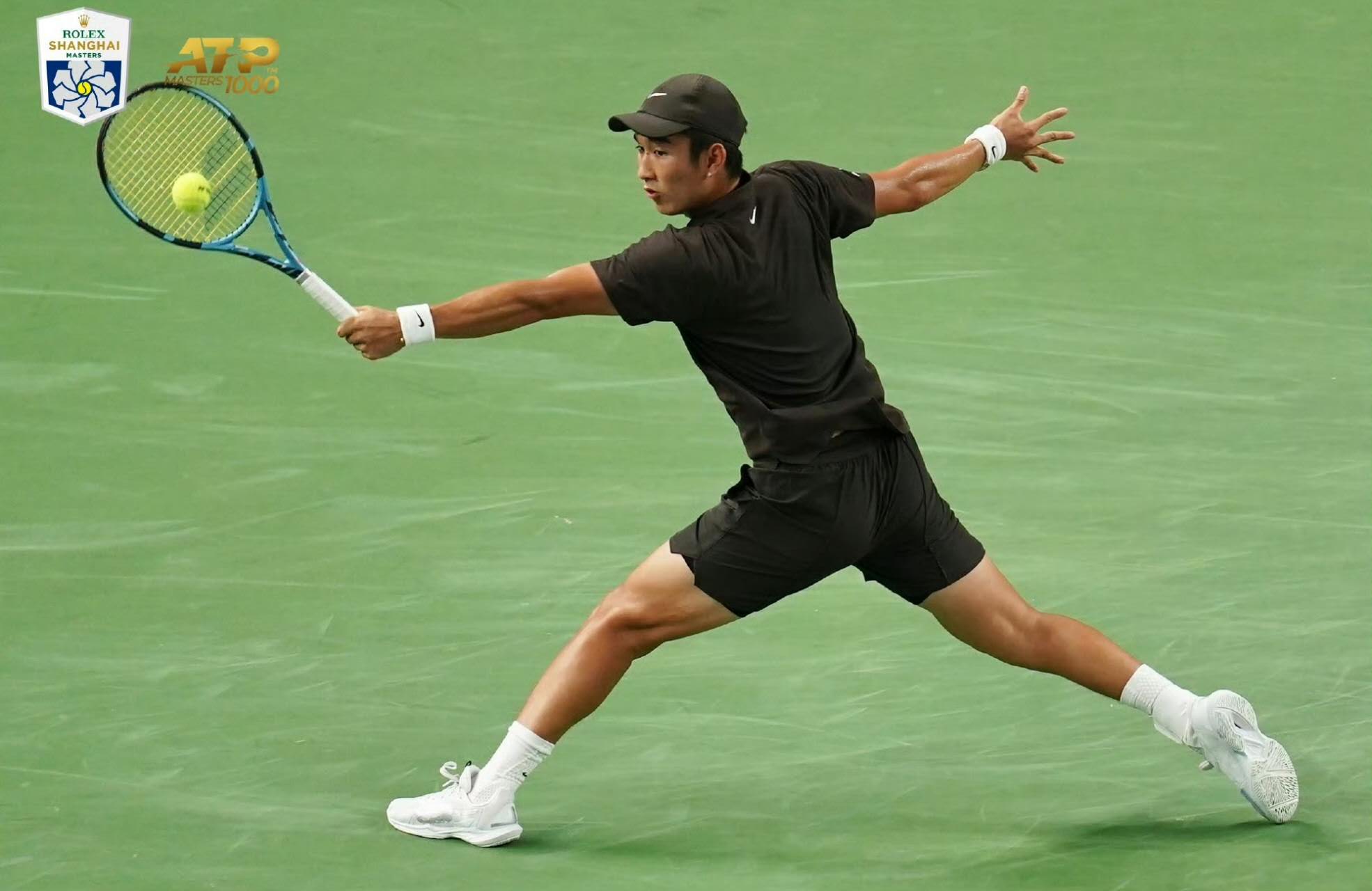Shang Juncheng ended the Chinese team’s embarrassing streak of eight consecutive losses, advancing to the second round for the second year in a row and earning 250,000 yuan in prize money.
“Finally a win!” When Shang Juncheng narrowly defeated the world No. 67 American player Kovacevic 6-4, 3-6, 6-3 to pass the first round, the entire Qizhong Tennis Center erupted in deafening cheers.

This hard-earned victory not only allowed Shang Juncheng to reach the second round of the Shanghai Masters for the second consecutive year but also ended the Chinese men’s singles team’s embarrassing eight-match losing streak in this tournament, bringing a long-awaited positive start for the Chinese squad.

Before the start of this year’s Shanghai Masters, the situation for Chinese men’s tennis was extremely difficult. From Hangzhou to Beijing and then to Shanghai, Chinese players seemed trapped in an unending nightmare.
At the Hangzhou Open, after Wu Yibing’s surprising run to the semifinals, the Chinese men’s team fell into a slump with no further wins; at the subsequent China Open, all Chinese men’s singles players were eliminated. Entering the Shanghai Masters, the shadow of continuous losses still loomed over the Chinese team. In the qualifiers, Sun Fajing, Cui Jie, Terigele, Xiao Linang, and Liu Hanyi all lost, with none advancing to the main draw. After the main draw began, the bad news kept coming: Zhou Yi fought hard but lost in three sets to de Jong; Zhang Zhizhen, despite winning the first set, was overturned by Baez; Wu Yibing retired due to injury after losing the first set 5-7.
Eight matches, eight losses — Chinese men’s tennis has hit an unprecedented low point.

As all early Chinese participants were knocked out, the last hope for the Chinese team in this Shanghai Masters rested on the yet-to-play Shang Juncheng and Bu Yunchaokete.
Bu Yunchaokete, currently the highest-ranked Chinese male player, faced tough luck in the draw, meeting world No. 71 Argentine player Cerundolo in the first round. Although Cerundolo is stronger on clay and comparatively weaker on hard courts, it was still a tough match for Bu Yunchaokete. His recent form has been poor; since the US Open, he has struggled to win, losing many points and dropping out of the top 100, causing concern.
Therefore, Shang Juncheng was seen as more likely to secure a victory. Although he has been troubled by injuries recently and dropped out of the top 200 in world rankings, his previous head-to-head record against Kovacevic gave him confidence — three years ago, at the Lexington semifinals, Shang came from behind to beat him.

Moreover, before the match, Shang Juncheng appeared in an interview with CCTV, showing a relaxed and positive mindset, expressing his eagerness to deliver an outstanding performance.
At the start of the match, Shang quickly found his rhythm, playing steadily to take the first set 6-4. Kovacevic did not give up easily, fighting back strongly in the second set to win 6-3, forcing a decisive third set. In the crucial final set, Shang regained control of the pace, breaking serve at key moments to secure a 6-3 victory, ending the Chinese team’s eight-match losing streak at the Shanghai Masters.

This win is highly significant for Shang Juncheng. It marks his second consecutive year advancing to the second round of the Shanghai Masters and is his fifth Masters-level victory in his career — previously, he had won one match each at the 2024 Indian Wells, Madrid, Rome, and Shanghai Masters.
Advancing to the second round earned Shang a prize of $35,260, approximately 250,000 yuan. Additionally, the 30 ranking points gained helped him rise to around world No. 237, laying a stronger foundation for his upcoming competitions. More importantly, this victory broke the losing streak that had weighed heavily on Chinese men’s tennis.

After the match, Shang wiped the sweat from his face gently and clenched his fist firmly. In the stands, Chinese fans waved national flags and called out his name. In the next round, Shang will face the 9th seed, Russian star Khachanov. Regardless of the outcome, he has already fulfilled the initial mission of this Shanghai Masters — keeping a spark alive for Chinese men’s tennis.

On the court, victory never comes easily, but moments like this remind every Chinese tennis player that every breakthrough on the journey forward is worth the wait.(Source: Tennis Home, Author: Lu Xiaotian)







 Links
Links
 Contact
Contact
 App
App


